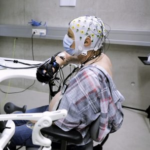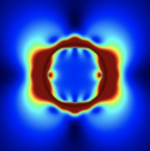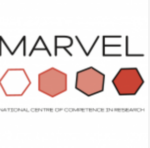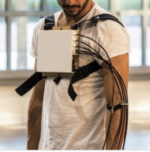A Word from the Dean
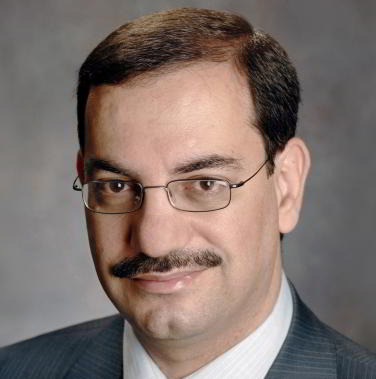
Ali H. Sayed
Dean of the School of Engineering
As we begin 2020 with a fresh optimism, it is my great pleasure to share with you the 2019 Annual Report for the EPFL the School of Engineering.
Our school is one of the finest engineering institutions of higher education in Europe and the World, and 2019 has been a busy year, with many initiatives and a showcase of the depth of talent from our faculty and students.
Browsing through these pages, you will learn about a vibrant and dynamic environment, one that embraces students from their first steps in engineering and guides them through an engaging curriculum. You will also read about the many opportunities our students have to step out of the box and be involved in exciting projects and competitions, both at the national and international stages.
Our faculty and researchers are among the best in their fields, fearless in their pursuit of novelty and successful in their engagement with industry and research partners across Europe and beyond. We are leaders in innovation and technology transfer, accounting in 2019 for close to 40% of all start-ups created at EPFL and more than 60% of all the technology disclosures. During this same year, researchers at the School of Engineering received many recognitions and grants, showing the impact of their contribution to society.
2019 was also the stage for the second edition of our Engineering PhD Summit and the first edition of our EPFL Excellence in Engineering Program, both of which attracted some of the best undergraduate, MS, and Ph.D. students from around the world. Another initiative, the Engineering Industry Day, was also a big success in 2019 with over 450 attendees.
We are a vibrant engineering school with the right dose of ambition and drive to be players on the international field and to be leaders in engineering design and applied science. In 2019, the School of Engineering and the College of Management at EPFL successfully launched the first edition of a joint Masters course that exposes students to entrepreneurial challenges by challenging them to design a product to be marketed.
I look forward to sharing the ground-breaking moments of 2020 with you.
Ali H. Sayed, Dean of the School of Engineering
Highlights 2019
Education
Articles
New Hands-On Graduate Course Links Engineering and Management
First successful edition of a joint Masters course between STI and CDM to expose students to entrepreneurial challenges by designing a product to be marketed.
Smart greenhouses let you grow vegetables in your own apartment
Two EPFL Master’s students have co-developed a technology for growing a small garden right in your home or office. They launched a startup to market their…
Using 3D printing to make prosthetics for Colombia war victims
Summer series – Student projects. For her Master’s project, Emylou Jaquier decided to tackle the growing problem of plastic waste. She sifted through EPFL garbage
Key Figures
Research
Articles
A robot recreates the walk of a 300-million-year-old animal
Using the fossil and fossilized footprints of a 300-million-year-old animal, an interdisciplinary team that includes scientists from EPFL and Humboldt-…
Optic nerve stimulation to aid the blind
EPFL scientists are investigating new ways to provide visual signals to the blind by directly stimulating the optic nerve. Their preliminary study on animals uses a …
Using AI to predict where and when lightning will strike
Researchers at EPFL have developed a novel way of predicting lightning strikes to the nearest 10 to 30 minutes and within a radius of 30 kilometers. The system uses …
Key Figures
Innovation
Articles
New residential solar panels deliver record-breaking efficiency
The solar panels developed by startup Insolight boast an impressive 29% yield – a record for the retail market. These systems, which have now been …
New dual-propeller drone can fly twice as long
EPFL startup Flybotix has developed a novel drone with just two propellers and an advanced stabilization system that allow it to fly for twice as long as …
EPFL develops solution for detecting deepfakes
Deepfakes – or fake videos produced to look real through the use of artificial intelligence – pose a growing challenge. That’s why an EPFL research group has
Key Figures
Outreach Programs
Engineering PhD Summit
The EPFL’s School of Engineering and Vice Presidency for Innovation held the 6th edition of the Engineering Industry Day on Thursday March 14th, 2024.
This event offers a focused platform for PhD students, researchers, professors, and companies to engage in substantive discussions and explore synergies.
Industry Day
The E3 EPFL Excellence in Engineering Program has been initiated in 2019 by the School of Engineering and offers an intensive research training opportunity to students from foreign universities interested in research careers in any field of engineering, science and technology.
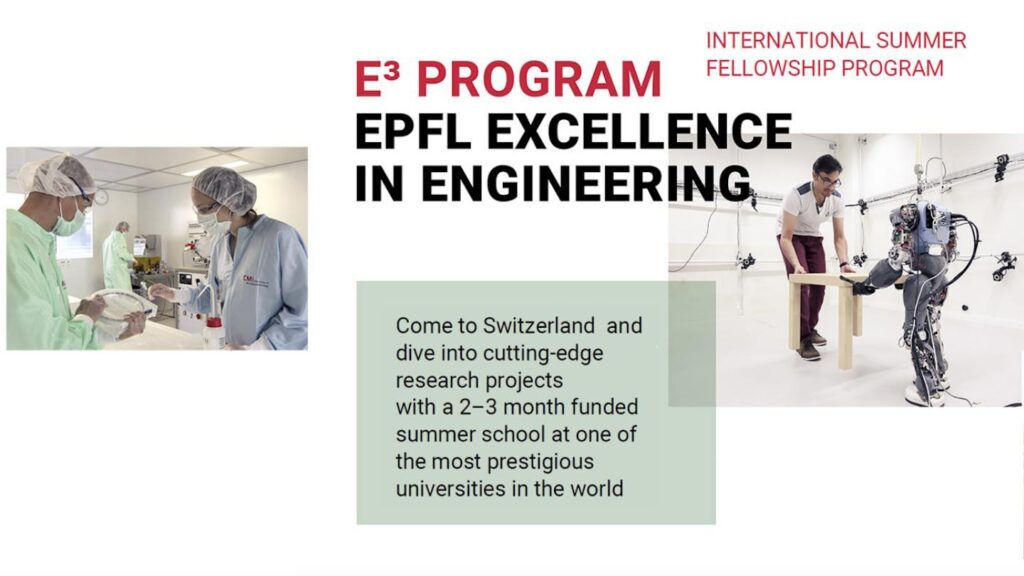
EPFL Excellence in Engineering Program
The E3 EPFL Excellence in Engineering Program has been initiated in 2019 by the School of Engineering and offers an intensive research training opportunity to students from foreign universities interested in research careers in any field of engineering, science and technology.
Mandatory industry Internships for master students
Internships in a company are an integral part of the Master curriculum in every master program at EPFL. This represents an excellent opportunity for students to get a crucial insight into the day‑to‑day work‑flow in industry and also provide the company a broad expertise and skills in engineering sciences.

